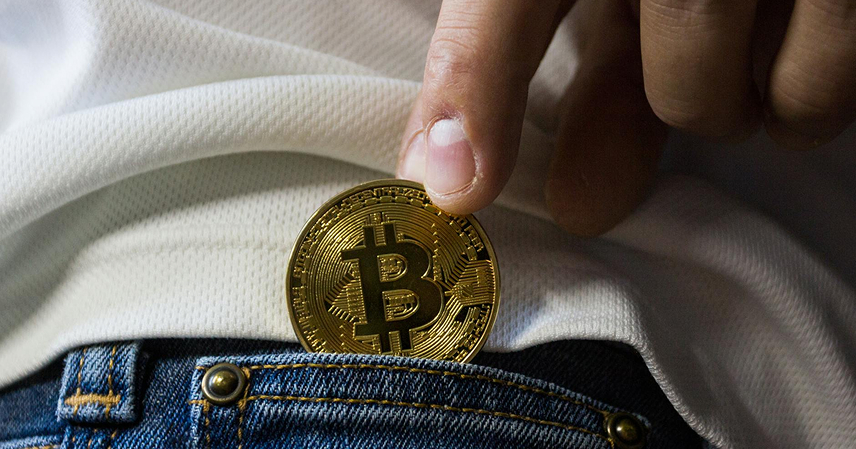1. Cryptocurrency: “Money that doesn’t actually exist”?
Cryptocurrencies—especially Bitcoin and other private tokens—are often described as lacking intrinsic value. RBI Governor Shaktikanta Das has warned that they are “speculative” and could spark financial instability blog.upay.best+4reddit.com+4reddit.com+4reddit.com. With no underlying assets like gold or fiat, their worth is purely narrative‑driven—making them ripe for manipulation by large Western actors or state interests.
2. Shifting Global Power via Crypto Reserves
In March 2025, the U.S. government announced a Strategic Bitcoin Reserve, holding ~200,000 BTC—essentially leveraging crypto as a geopolitical financial tool en.wikipedia.org. This move could create ripple effects in global markets, driving prices up or down at will. For economies like India’s, such top-down control from the West threatens monetary autonomy and market stability.
3. Volatility: Weapon or Side Effect?
Crypto markets are notoriously volatile. Tariff waves or macro shocks in the U.S. have triggered 20–28% drops in BTC, ETH, Solana, XRP, and Doge—demonstrating vulnerability to global policy shifts reddit.com. India’s investors—especially retail—can be caught in sudden crashes, eroding confidence and draining domestic savings.
4. The “Deep State” & Crypto Channels
Beyond corporate actors, there’s concern around deep-state networks leveraging crypto for geopolitical aims. For example, investigations in the U.K. uncovered extensive laundering of Kremlin-linked funds via crypto exchanges blog.upay.best. While India hasn’t seen that level of exposure yet, the pattern shows how private cryptocurrencies can bypass sanctions and influence economies indirectly.
5. Threats to the Indian Economy
- Capital Flight: Without tight regulation, wealth can move offshore instantly, undermining rupee stability reddit.com+2outlookindia.com+2bfsi.economictimes.indiatimes.com+2.
- Monetary Sovereignty: Parallel crypto channels weaken RBI’s grip on money supply, interest rates, inflation control, and currency policy .
- Investor Vulnerability: Indian investors—especially first-timers—are exposed to scams, hacks (e.g., ₹270M frozen, WazirX hack), and sharp losses en.wikipedia.org+5reddit.com+5outlookindia.com+5.
- Regulatory Capture: Tight taxation (30% gains + 1% TDS), unclear laws, and bank non-cooperation push activity underground — increasing illicit finance and reducing innovation tidesacademy.com+4m.economictimes.com+4reddit.com+4.
6. The Role of Western Influence: A Deep-State Lens
Some argue that the West, through policy tools like the Strategic Reserve and sanction-evading crypto operations, may intentionally destabilize other economies. In India, such moves would:
- Undermine rupee internationalization efforts reddit.com.
- Force dependence on U.S. policy and narrative.
- Prioritize Western profit cycles over local stability.
Whether intentional or by-product, the West’s dominance in crypto infrastructure—with exchanges, protocols, and regulatory sway—gives it outsized influence over who benefits and who suffers.
🧭 What India Must Do
- Accelerate Regulatory Clarity: Draft the stalled “Crypto Bill” with a multi-regulator framework (RBI for payments, SEBI for assets), and adopt global standards like FATF and MiCA cryptodamus.io+1reddit.com+1.
- Introduce Safe Crypto Channels: Pilot regulated corridors, custodial services, or sandboxes to manage volatility and reduce illicit activity .
- Leverage CBDC: Use the Digital Rupee to offer stability and drive financial inclusion over private tokens bfsi.economictimes.indiatimes.com+3reddit.com+3blog.upay.best+3.
- Boost Investor Education & Protections: Share risk warnings, protect consumers, and penalize fraud aggressively .
- Guard Monetary Sovereignty: Enforce limits or capital controls around crypto until domestic regulatory and financial infrastructure can safely absorb it.
Conclusion
Cryptocurrency isn’t inherently a weapon. But in the domain of global finance—especially where Western state-backed reserves, exchange dominance, and deep-state laundering infrastructure intersect—it can be. For India, unchecked crypto growth risks ceding monetary control, destabilizing markets, and empowering foreign actors. A proactive, balanced approach is critical to protect national economic interests while embracing potential innovation.


